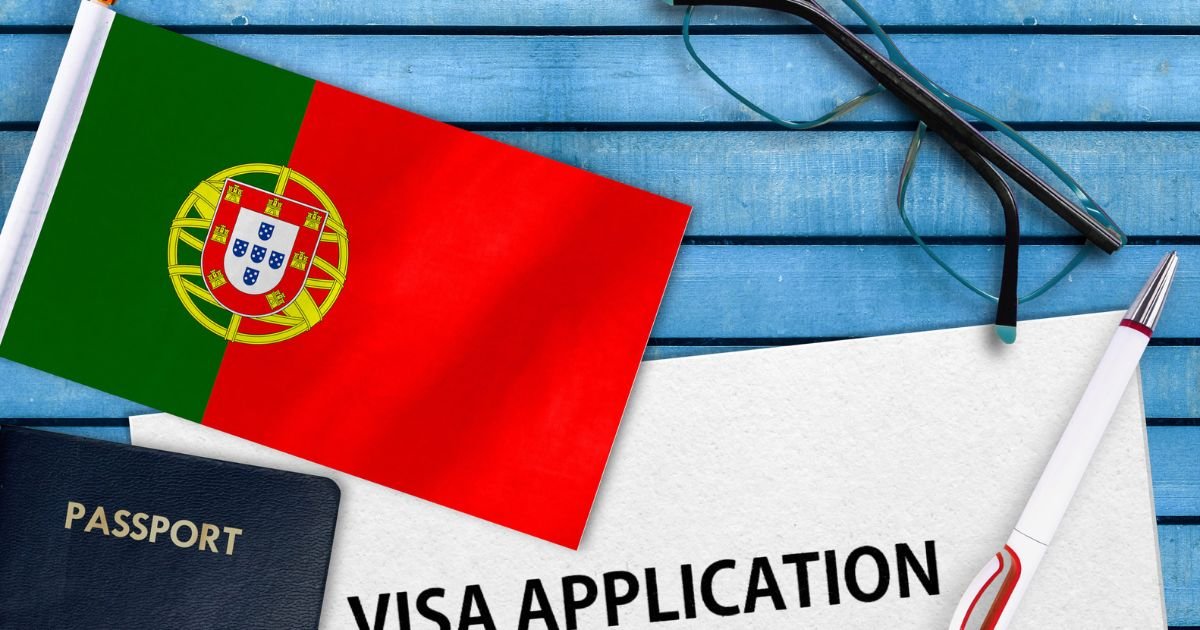In 2024, Portugal’s immigration sector will adapt to new labor demands and leverage digitalization. Border processes will integrate smarter technologies, and residency pathways will favor skilled professionals.
Portugal’s allure as a prime destination for immigrants shows no signs of waning as we approach 2024. The country’s immigration policies continue to evolve in response to global shifts, economic needs, and socio-political factors. As a hub for innovation and diversity, Portugal is set to refine its legal frameworks, making them more conducive to attracting talent and investment.
This year’s focus on streamlining procedures will likely enhance the appeal for entrepreneurs and highly skilled workers. Entering the year, experts in the sector anticipate a blend of legislative reforms and the heightened influence of technological advancements. These anticipated changes are poised not only to revamp the immigration process but also to align with the broader goals of promoting sustained economic growth and cultural enrichment. Understanding the inherent dynamics of this sector is crucial for prospective immigrants, businesses, and policy-makers aiming to navigate the evolving landscape.
KEY TAKEAWAYS
Sustainability Focus: Portugal’s immigration sector is undergoing a significant transformation in 2024, with a focus on sustainability. This includes offering green visa incentives, mandatory sustainability orientation programs, and promoting eco-friendly businesses to align immigration policies with environmental consciousness.
Skilled Worker Attraction: Portugal is prioritizing the attraction of skilled workers by revising its skilled worker programs. This involves prioritizing sectors with skill shortages, simplifying the application process, and providing support services for newcomers to ensure a smoother transition into the workforce.
Investment Diversification: Portugal is encouraging investment diversification by promoting investment in various sectors. This includes less-developed regions, high-tech and start-up ventures, renewable energy projects, and small and medium-sized enterprises (SMEs) to stimulate economic growth and development across different areas of the country.
Tech Integration: Technology integration is playing a major role in streamlining Portugal’s immigration processes. This encompasses features such as automated application processing, e-residency programs, biometric security systems, blockchain-based verification, and virtual assistants to enhance efficiency and convenience for both applicants and authorities.
Table of Contents
ToggleDelays And Bureaucracy

Portugal’s charm as an expat destination continues to flourish, attracting individuals worldwide with its rich culture, beautiful landscapes, and friendly locals. Yet, navigating through the country’s immigration processes can be akin to a thrilling Fado melody, full of emotional twists and turns.
In 2024, the symphony of paperwork and regulation saw both new movements and familiar refrains after Portugal announced their new immigration policy. Let’s explore how the delays and bureaucracy play out in the unfolding year.
The Complexity Of Visa Processing
One might think that advancements in technology would streamline visa applications, but the reality paints a different picture. A myriad of complex requirements has resulted in a process with numerous hurdles:
- Document Submission Procedures: Despite digitalization efforts, the submission of supporting documents remains a puzzle. Each document must meet precise criteria and often requires official translations, authentication, or apostille.
- Interagency Communication: The taunting maze of interdepartmental liaisons often means applicants are left waiting in limbo. Applicants must navigate between multiple authorities, each with its turnaround times and information silos.
- Updated Requirements: Immigration laws are like shifting sands. Small changes in policy or practice can mean significant adjustments to application strategies, often prolonging the process as applicants scramble to keep up-to-date.
Appointment Avalanches
Following a surge in demand, securing an appointment for immigration services has become akin to finding a hidden treasure. An influx of applicants coupled with limited resources has led to long waiting periods:
Some indicators of this issue include:
- Limited Slots: The number of daily appointments is dwarfed by the number of hopeful applicants. This imbalance has created a backlog that extends months, if not years, in advance.
- Cancellation and Rescheduling: Often, an appointment secured today can be canceled tomorrow. Unscheduled changes disrupt plans and contribute to the backlog, as each cancellation requires applicants to start the waiting game anew.
- Tech Hurdles: While online booking systems are intended to simplify the process, they can also become jammed, leaving applicants staring at loading screens rather than securing their path to residency.
As Portugal tackles the growing pains of an attractive immigration destination, we see the interplay of delays and bureaucracy significantly shaping the experiences of future expats. The dance between efficiency and thoroughness continues, as applicants and authorities alike aim for a rhythm that embraces both the need for scrutiny and the desire for timely processing.
Fee Fluctuations And Policy Shifts

Navigating Portugal’s immigration landscape in 2024 will demand adaptability due to fee fluctuations and policy shifts. These dynamics are critical among the top changes influencing newcomers and expats.
Fee Fluctuations In Portugal’s Immigration
The world of immigration is often dynamic, and 2024 is no different when analyzing Portugal’s sector. Particularly noteworthy are the changes in the fee structure for various immigration processes.
- Visa application cost changes: The government has revised visa application charges, affecting scores of applicants.
- Adjustment for inflation: In response to economic demands, fees have been adapted to mirror the inflation rate.
- Diverse fee schedules for different services: The spectrum of immigration services now comes with a diverse range of associated fees.
Policy Shifts Impacting Immigration
As nations adjust to global trends and demands, Portugal’s immigration policies haven’t remained static. A series of reforms and new regulations are set to take effect, reshaping the framework in which immigrants and expats navigate the system.
- Legislative amendments: Updates to immigration law reflect a more progressive and accommodating stance towards international newcomers.
- Streamlined processes for residency: Efforts to simplify residency applications promise quicker turnaround times for applicants.
- Focus on skilled migrants: With the demand for talent, there’s a targeted approach to attract highly skilled workers through policy relaxations.
Staying informed and adaptable is crucial amid these evolutions in Portugal’s immigration landscape. As 2024 approaches, these fee fluctuations and policy shifts are pivotal markers of the ongoing transformations within the sector.
Culturally Focused Programs

Portugal’s immigration landscape in 2024 is set to be shaped by culturally focused programs. These initiatives are pivotal in driving integration and fostering community connections among new residents.
Portugal’s immigration landscape is poised for a significant evolution in 2024, shaped by a diverse array of trends and changes. Among the most noteworthy developments are culturally focused programs designed to create a more welcoming and inclusive environment for newcomers to Portugal.
Culturally Focused Integration Initiatives
Portugal is set to roll out several initiatives aimed at smoothing the cultural integration process for immigrants. With a recognition that successful integration is a cornerstone of a flourishing multicultural society, these programs take center stage:
- Language acquisition platforms: Tailored online and in-person courses facilitated by native speakers, aimed at expediting Portuguese language proficiency among immigrants.
- Community engagement events: Local festivals and meet-ups encourage social mingling, celebrate diversity, and foster a sense of belonging.
- Cultural competency training for public officials: Workshops to equip government employees with the skills to effectively serve a diverse populace.
Lack of Genuine Portugal-Specific Travel Guides: Despite Portugal’s popularity as a tourist destination, there is a notable absence of genuine, comprehensive travel guides specifically tailored to the country’s unique offerings available on the internet.
- Many existing online resources offer generic or outdated information that may not accurately represent Portugal’s diverse culture, attractions, and local experiences.
- This gap in authentic travel guidance hampers tourists’ ability to fully immerse themselves in Portugal’s rich heritage, cuisine, and hidden gems, leading to potentially missed opportunities for meaningful exploration and cultural exchange.
- Addressing this issue could involve the development of curated, up-to-date travel guides created in collaboration with local experts and stakeholders, providing visitors with reliable insights and recommendations to enhance their Portuguese travel experiences.
Enhancing Intercultural Dialogue
Strengthening the fabric of intercultural communication stands as a core goal for Portugal’s immigration policy in the coming year. Here’s how the nation intends to break down barriers:
- Collaboration with cultural ambassadors: Enlisting individuals from various ethnic backgrounds to serve as bridge-builders between their communities and Portuguese society.
- Media campaigns: Utilizing television, radio, and social media to highlight the contributions of immigrants and promote cultural appreciation.
- Support for cultural preservation groups: Offering grants and resources to immigrant communities for the maintenance and celebration of their cultural heritages within Portugal.
Empowerment Through Education
A well-informed immigrant population is an empowered one, and Portugal is taking strides to ensure education is at the heart of its cultural programs:
- Educational seminars on Portuguese history and culture: Seminars that facilitate a better understanding of the country’s rich heritage and current societal norms.
- School exchange programs: Initiatives enabling children of immigrants to engage with their Portuguese peers, fostering early cultural exchange and mutual understanding.
By implementing these culturally focused programs, Portugal is not only preparing the ground for a more cohesive society but also setting a global example of how to gracefully navigate the complexities of immigration. Each program is thoughtfully designed to respect the heritage of new residents while weaving them into the country’s vibrant cultural tapestry.
Remote Work Visas

Exploring the impact of remote work visas, a pivotal shift in Portugal’s immigration landscape for 2024 emerges as a top trend. These visas accommodate the growing digital nomad community, reflecting Portugal’s adaptation to global work transformations.
The Surge Of In Portugal
In the wake of the global shift towards digital nomadism, Portugal has rolled out its much-anticipated remote work visas, designed to attract digital nomads worldwide. This seismic change caters to non-EU residents who seek to enjoy the country’s rich culture and pleasant climate while working for companies based outside Portugal.
Eligibility Criteria
- Self-sufficiency: Applicants must provide proof of sustained income to support their stay.
- Health insurance: A requirement for a valid international health insurance plan.
- Clean criminal record: Safety is paramount; hence a clean criminal record is essential.
Application Process Simplicity
Embracing digital transformation has led to Portugal streamlining the visa application process. Now you can apply and track the progress of your visa through a user-friendly online portal, which means less paperwork and more transparency.
Economic Impact On Local Communities
- Boost in local spending: Remote workers contribute to the economy through housing, dining, and leisure.
- Cultural exchanges: They bring diverse perspectives, fostering a cosmopolitan environment.
Renewal Policies And Duration
Portugal’s remote work visa offers the flexibility of a one-year stay, with the potential for renewal. This strikes a perfect balance between an extended visit and the option to stay longer if the arrangement suits both parties.
Collaboration With Co-working Spaces
- Special deals: Partnerships with local co-working spaces offer attractive discounts.
- Networking opportunities: These spaces become hubs for community engagement and professional networking.
By adapting to the evolving landscape of employment and offering a competitive remote work visa, Portugal positions itself as a leading destination for professionals opting for a flexible lifestyle, without compromising on work productivity or the opportunity to immerse in a new culture.
Second Residencies And Citizenships

Navigating Portugal’s immigration landscape in 2024 reveals a dynamic shift, with second residencies and citizenships at the forefront. Essential updates and emerging trends now shape investment pathways and residency options, offering new opportunities for global citizens.
Portugal’s immigration sector is ever-evolving, adapting to the global landscape and the fluctuating needs of expatriates and investors. In 2024, we’re seeing an intriguing shift in how Portugal curates its policies around second residencies and citizenships to foster a dynamic and cosmopolitan community.
Second Residencies Through Investment
The Portuguese Golden Visa program continues to be a cornerstone in attracting foreign investment but with tweaked prerequisites geared towards promoting regional development:
- Investment Thresholds: Modification in the minimum investment requirements, with a potential increase to encourage high-value investments.
- Real Estate Options: New regulations that may pivot investments from high-density areas like Lisbon and Porto to low-density regions, supporting a more balanced property market growth.
- Job Creation: Enhanced focus on generating employment opportunities through investments, with possible incentives for entrepreneurs who support the local economy.
Enhanced Family Reunification Rules
In 2024, Portugal emphasizes keeping families together through more inclusive family reunification policies:
- Broadened Eligibility: Expansion of eligible family members, possibly incorporating extended relatives beyond the immediate family.
- Simplified Processes: Streamlined bureaucracy that could reduce waiting times and provide a smoother path to residency.
Citizenship By Descent Adjustments
Portugal honors its historical ties by refining the laws surrounding citizenship by descent:
- Documentation Flexibility: Probable relaxation in the documentary evidence is required, easing the process for descendants of Portuguese nationals.
- Timeframe Reductions: Accelerated procedures that might significantly shorten the duration for processing citizenship applications.
Increased Digital Integration For Immigration Services
Portugal’s technological push introduces digital innovation in the immigration sector:
- Online Platforms: Enhanced online services for application submissions and status tracking, aiming to improve overall user experience.
- Virtual Assistance: Introduction of AI-driven help desks to guide applicants through their residency or citizenship journey.
Pathways For Highly Skilled Migrants
Recognizing the importance of talent acquisition, Portugal’s immigration policies harness the potential of highly skilled professionals:
- Special Visas: Implementation of dedicated visa categories for tech experts, scientists, and innovators, with favorable conditions to attract the global elite.
- Collaborative Programs: Partnerships with tech hubs and universities, offering unique opportunities for knowledge exchange and sector growth.
Portugal is keen on adapting its immigration policies to align with contemporary global trends and the needs of international residents. The changes and trends for 2024 paint a future where Portugal not only continues to value its rich culture and heritage but also embraces the evolution of a modern, interconnected society.
With its finger on the pulse of progress, Portugal’s immigration sector is set to open new doors for those seeking second residencies and citizenships, amplifying its allure as a prime European destination.
Focus On Sustainability
Embracing eco-conscious practices, Portugal’s immigration sector is set to revolutionize in 2024 with sustainability at its core. This pivotal shift ensures a greener future while shaping immigration policies and processes.
Portugal’s Embrace Of Eco-conscious Immigration
In 2024, the trends in Portugal’s immigration sector reveal a strategic pivot towards environmental stewardship. The symbiosis between welcoming new residents and preserving the country’s stunning landscapes has never been more pronounced. Migrants are now considered critical allies in championing sustainability initiatives, as Portugal sets its sights on becoming a beacon of green living.
Green Visa Incentives
- Visa prioritization: Immigrants applying for residency under environmental and sustainable investment schemes receive expedited processing.
- Tax benefits: Special tax considerations are granted to those investing in green projects, such as renewable energy or sustainable agriculture.
Mandatory Sustainability Orientation
Portugal introduces compulsory eco-orientation programs designed to integrate immigrants into the nation’s culture of conservation. This requirement ensures that new residents are well-versed in local environmental policies and sustainability practices from the moment they arrive.
Environmental Criteria In Housing
- Green building compliance: Only those residential projects that meet stringent eco-friendly standards are approved for immigrant housing.
- Energy efficiency incentives: Additional benefits are offered to immigrants who choose to live in energy-efficient homes, underscoring the country’s commitment to reducing carbon footprints.
Enhancement Of Public Transportation
Portugal’s investment in its public transport infrastructure is a strategic move, simultaneously addressing climate change and fostering immigrant integration. Expanded routes and improved sustainability in transit options underscore the country’s efforts to reduce vehicle emissions and promote eco-friendly commuting for all residents.
Support for Sustainable Businesses
- Entrepreneurial programs: Immigrants who establish eco-conscious businesses receive guidance, funding, and incubation support.
- Collaboration with local firms: There are facilitated partnerships between immigrant entrepreneurs and existing Portuguese companies focused on green innovation.
Portugal’s proactive approach in intertwining immigration with environmental concerns charts a course towards a more sustainable and inclusive future. By integrating eco-conscious values into the fabric of immigration policy, Portugal not only enriches its culture but also fortifies its commitment to the planet.
Skilled Worker Programs
Portugal’s Skilled Worker Programs are evolving significantly in 2024, adapting to new immigration trends. These changes aim to attract global talent, reflecting the nation’s strategic focus on enhancing its workforce diversity and economic growth.
Evolving Criteria For
Navigating Portugal’s immigration landscape, we observe that skilled worker programs are set for a strategic overhaul in 2024. As the nation seeks to attract top global talent, policymakers are fine-tuning eligibility criteria to align with Portugal’s economic and technological ambitions.
The meticulous crafting of these programs underscores a national commitment to competitiveness and innovation.
Priority Sectors And Skills Shortage List
- Targeted Industry Expansion: Portugal is poised to prioritize immigration in sectors demonstrating significant growth potential, such as technology, renewable energy, and biotech.
- Updated Skills Shortage Catalog: A dynamic list will be maintained to reflect real-time shortages in skilled trades, ensuring responsiveness to the evolving market demands.
Simplified Application Process
The bureaucratic red tape once synonymous with immigration applications is set to be a relic of the past. Portugal’s 2024 vision involves a streamlined process that accelerates and simplifies the journey for potential skilled immigrants. This proactive improvement speaks volumes about Portugal’s acknowledgment of the global talent competition.
Enhanced Support Services For Newcomers
- Onboarding Programs: Tailored programs will nurture the integration of skilled workers into Portuguese industries, facilitating smoother transitions.
- Mentorship Opportunities: Partnering new arrivals with established professionals will help bridge cultural and professional gaps, fostering a collaborative community.
Promotion Of Regional Dispersion
While Portugal’s coastal cities have long been the magnets attracting newcomers, a conscious effort is underway to promote the appeal of lesser-known regions. Enhanced incentives beckon skilled workers to areas beyond the usual hotspots, such as Lisbon and Porto, highlighting Portugal’s diversity and potential for balanced development.
Partnerships With Educational Institutions
- Curricular Collaboration: Higher education institutions may soon play a pivotal role in shaping curricula to produce graduates with marketable skills that cater to Portugal’s strategic sectors.
- Work-Study Pathways: Programs offering a blend of education and work experience could become the backbone of Portugal’s effort to sustainably populate its workforce with skilled professionals.
Intensified Language And Cultural Preparation
Proficiency in Portuguese is not just about language; it’s an immersive gateway into the cultural intricacies of the nation. Upcoming changes reveal plans to reinforce language training as a core facet of the skilled worker programs, ensuring that communication remains a vibrant cornerstone of successful integration.
Increased Thresholds For Qualifications
- Elevated Educational Standards: The bar is being raised with a heightened emphasis on advanced degrees and professional certifications, reflecting a shift toward high-caliber expertise in the workforce.
- Recognition of Global Credentials: International qualifications will undergo rigorous assessment to ensure compatibility with Portuguese industry standards, promoting a seamless transition for skilled personnel.
Investment Diversification
Embracing investment diversification within Portugal’s immigration sector in 2024 can be pivotal. As the landscape evolves, diversifying assets could strategically bolster economic resilience for investors.
Portugal’s immigration landscape is ever-evolving, and as 2024 approaches, prospective migrants and investors alike are keen to understand the latest trends that will shape their decisions. A particularly notable shift is occurring within the investment segment, underscoring the importance of strategy diversification.
Expansion Into New Regions
Investors have traditionally gravitated toward Portugal’s major cities like Lisbon and Porto. Yet, in 2024, the spotlight shines on previously overlooked regions:
- Emerging hotspots: The Algarve and Madeira are swiftly becoming attractive alternatives, offering lucrative opportunities in tourism and real estate.
- Rural revitalization: Incentives offered for investments in low-density areas are leading to a renaissance in the countryside, promoting sustainable development and employment.
This regional expansion exemplifies Portugal’s commitment to balanced economic growth and offers diverse options for investors seeking to capitalize on less saturated markets.
Promoting Tech And Start-up Investments
The Portuguese government is not just diversifying locations but also the sectors of investment. Moving beyond real estate, 2024 showcases a strong push toward high-tech and start-up ventures:
- Tech-friendly policies: With tax breaks and supportive legislation, the tech sector offers a promising ground for investments, aligning with global digitization trends.
- Start-up synergies: Portugal’s vibrant start-up ecosystem is ripe for growth, and 2024’s policies foster collaborations between investors and budding entrepreneurs, accelerating innovation and job creation.
Renewable Energy And Sustainable Projects
Sustainability is no fad, and Portugal is keen to be at the forefront of this global movement by encouraging eco-friendly investment:
- Green incentives: The government is providing favorable terms for projects in renewable energy, waste management, and sustainable infrastructure, positioning Portugal as a green investment hub.
- Eco-tourism: There is a rising trend in investments in eco-tourism, with the country’s natural beauty catalyzing environmentally responsible tourism ventures.
The emphasis on sustainable initiatives resonates with a global audience increasingly conscious of environmental impact, making Portugal an even more attractive destination for forward-thinking investors.
Enhanced Support For Small And Medium-sized Enterprises (SMEs)
Portugal’s backbone has always been its SMEs, and 2024 is the year they take center stage in investment strategies:
- Focused funding: New programs and subsidies are aimed specifically at bolstering SMEs, especially in export-oriented and innovative industries.
- Strategic partnerships: There is a push for international investors to partner with Portuguese SMEs to facilitate technological advancements and market expansion.
By supporting SMEs, Portugal strengthens its economic fabric and offers varied investment avenues that parallel more significant, riskier ventures, catering to a broad spectrum of investor appetites.
Streamlined Application Process
Portugal’s immigration sector is set to revolutionize in 2024, introducing a streamlined application process aimed at enhancing efficiency and simplicity for applicants. This pivotal change reflects a commitment to innovation and accessibility in navigating the immigration landscape.
Navigating the complexities of immigration can be a daunting endeavor, but Portugal is making strides to simplify the process in 2024. Progressive changes are anticipated, all geared towards enhancing the efficiency of application procedures and reducing turnaround times. Here’s what to expect.
Digitalized Documentation
In a move towards modernization, the immigration sector is embracing technology:
- Online submission platforms: Allowing applicants to submit documents and applications electronically.
- Secure digital storage: Providing a safe environment for personal data, reducing the risk of loss or damage.
The digitization of paperwork not only streamlines the process but also significantly cuts down on the waiting period for applicants, as officials can review submissions more rapidly.
Multilingual Support
Communication barriers are being torn down with the implementation of multilingual services:
- Language options for applications: Offering forms and instructions in a variety of languages to accommodate non-Portuguese speakers.
- Translation services: Ensuring applicants without proficiency in Portuguese can fully understand each step of the process.
Expedited Procedures For Skilled Workers
Emphasis is being placed on attracting global talent to Portuguese industries:
- Priority processing: Skilled professionals are offered an expedited pathway through the application stages.
- Tailored visa categories: Creating specific visas to address the needs of industries facing labor shortages or in need of specialized skills.
This shift not only fuels the nation’s competitive edge in the global market but also helps industries thrive by filling crucial skill gaps.
Enhanced Customer Service
The human element remains pivotal, with a focus on improving direct support:
- Helpdesks and hotlines: Expanding these services to assist with inquiries and provide guidance through the application steps.
- In-person assistance: Staff at local immigration offices receive additional training to handle complex cases and provide personalized support.
This commitment to customer service aims to ease the anxiety associated with the immigration process, providing applicants with reassurance and clarity.
Periodic Process Review
Lastly, a dedication to continual improvement is evident:
- Feedback mechanisms: Encouraging applicants to contribute suggestions and report issues to help refine the application process.
- Regular updates: Immigration policies and procedures will undergo frequent evaluations to ensure they remain relevant and user-friendly.
Adapting to feedback and staying current with global practices ensures that Portugal’s immigration process is not only streamlined but also aligned with international standards of excellence.
Tech Integration
Tech integration will shape Portugal’s immigration landscape in 2024, with digital platforms leading the charge in streamlining processes and enhancing accessibility. Embracing innovation, the sector is set to deliver faster, more efficient services, tailoring to the diverse needs of a global populace.
Embracing The Digital Frontier: Portugal’s Immigration Goes High-tech
The year 2024 sees Portugal’s immigration sector standing at the cusp of a technological revolution. Digital platforms are revolutionizing how we communicate, and process information, and now, how nations manage borders and immigration. As we delve deeper into this transformative era, it’s clear that tech integration isn’t just a trend—it’s the new standard.
Automated Application Processing
- Streamlined efficiency: With the implementation of artificial intelligence and machine learning, the Portuguese immigration system now sorts and processes applications with unprecedented speed. This advance slashes wait times and boosts applicant satisfaction.
- Enhanced accuracy: Gone are the days of human error in manual processing. Algorithms cross-verify data, ensuring that each application is accurate and compliant with the latest regulations.
E-residency Programs
As a trailblazer in the realm of technological adoption, Portugal introduced its E-Residency program in 2024, enabling global entrepreneurs to run businesses registered in Portugal virtually.
- Empowered global entrepreneurs: Through this initiative, individuals around the world can tap into Portugal’s robust digital infrastructure and business-friendly environment, fostering a culture of innovation without the need for physical relocation.
Biometric Security Systems
- Advanced traveler identification: Portugal’s borders have become safer and more secure with the introduction of biometric systems. Using unique identifiers such as fingerprints and facial recognition, these systems ensure that only authorized individuals can enter and exit.
- Seamless border crossings: Due to these innovations, travelers now experience quicker and more user-friendly checkpoint processes, underpinning a hassle-free journey into the country.
Blockchain-based Verification
Exploring the full potential of blockchain technology, Portugal integrates it into immigration for verifiable and tamper-proof document management.
- Indelible record-keeping: Each document, once entered into the blockchain, becomes a part of an unalterable ledger. This change provides both immigrants and officials with the comfort of knowing their records are secure and always retrievable.
- Cross-border cooperation: This integration positions Portugal as a pioneer in international immigration management, greatly simplifying the exchange and verification of information between countries.
Virtual Assistance And Chatbots
- Instant support: Virtual assistants, powered by artificial intelligence, now offer real-time support to applicants and residents, answering queries and guiding them through the immigration process.
- Personalized interactions: These systems are not just efficient—they learn and adapt to the specific needs of the user, providing a more tailored and personalized experience for each individual.
Portugal’s embrace of technology within the immigration sector serves as a beacon to other nations. Its bold steps towards tech integration promise a future of efficiency, security, and unparalleled opportunity for all who engage with its borders.
Frequently Asked Questions For 10 Changes and Trends that Will Shape Portugal’s Immigration Sector In 2024
What Are Portugal’s New Immigration Policies For 2024?
Portugal’s new immigration policies in 2024 prioritize high-skilled workers and digital nomads while simplifying the Golden Visa process. These changes aim to attract global talent and boost economic growth.
How Has Portugal’s Immigration Trend Changed Recently?
In recent years, Portugal has seen a shift towards attracting tech professionals and entrepreneurs. Initiatives like the Startup Visa have made it a hub for innovation and investment, particularly in the tech sector.
What Impact Will Immigration Have On Portugal’s Economy?
Immigration is set to positively impact Portugal’s economy by addressing labor shortages and fostering diversity in the workforce. Skilled immigrants contribute to innovation and economic dynamism, bolstering growth.
Can I Retire In Portugal In 2024?
Yes, retiring in Portugal in 2024 remains attractive with its favorable visa options for retirees, such as the D7 Passive Income Visa. Portugal offers a high quality of life and affordable living costs.
Conclusion
Navigating the shifts in Portugal’s immigration landscape demands adaptability and foresight. The 10 trends highlighted are pivotal for both policymakers and applicants. As 2024 unfolds, staying abreast of these developments will be crucial for success in navigating Portugal’s immigration pathways.
Embrace these changes, and harness the opportunities they present.


